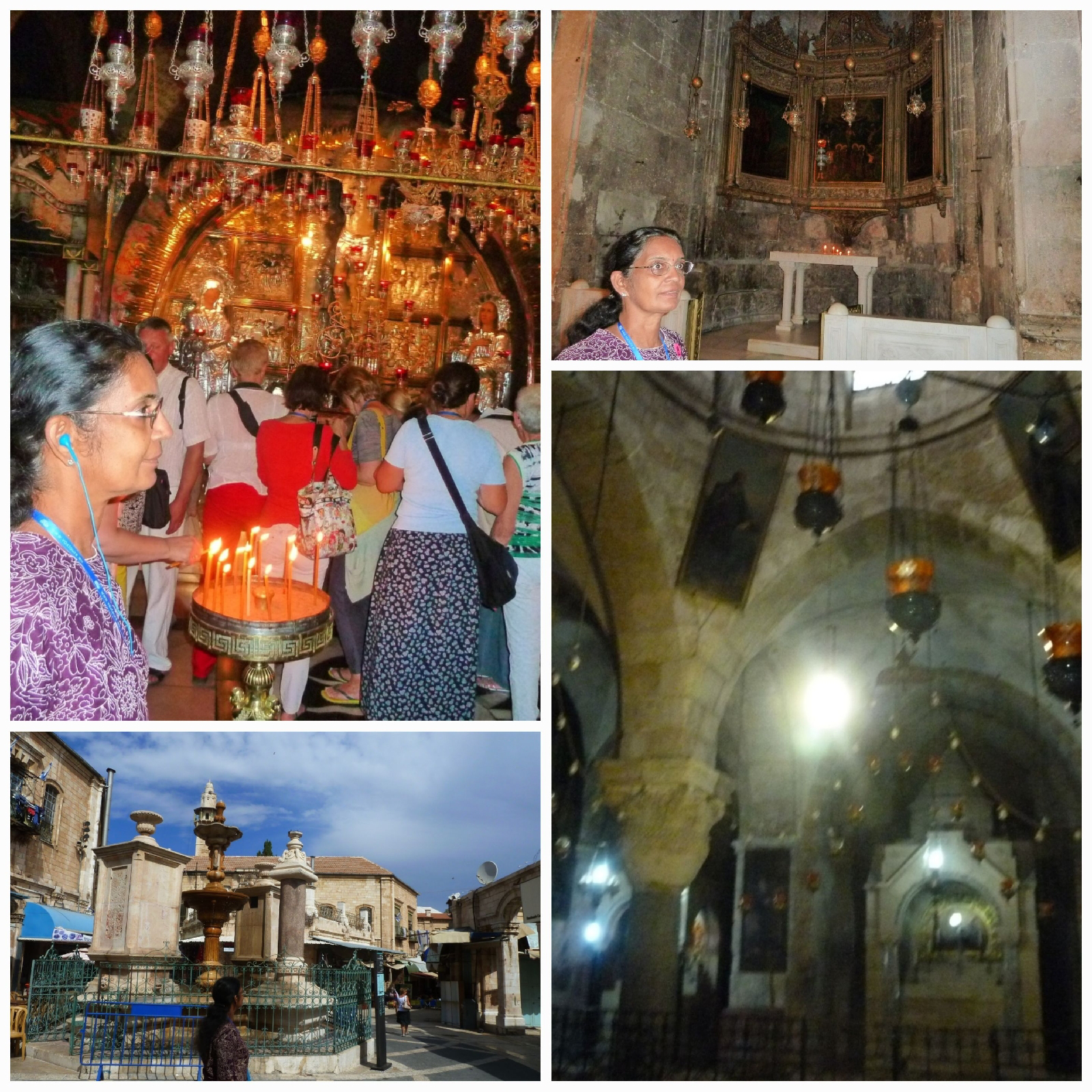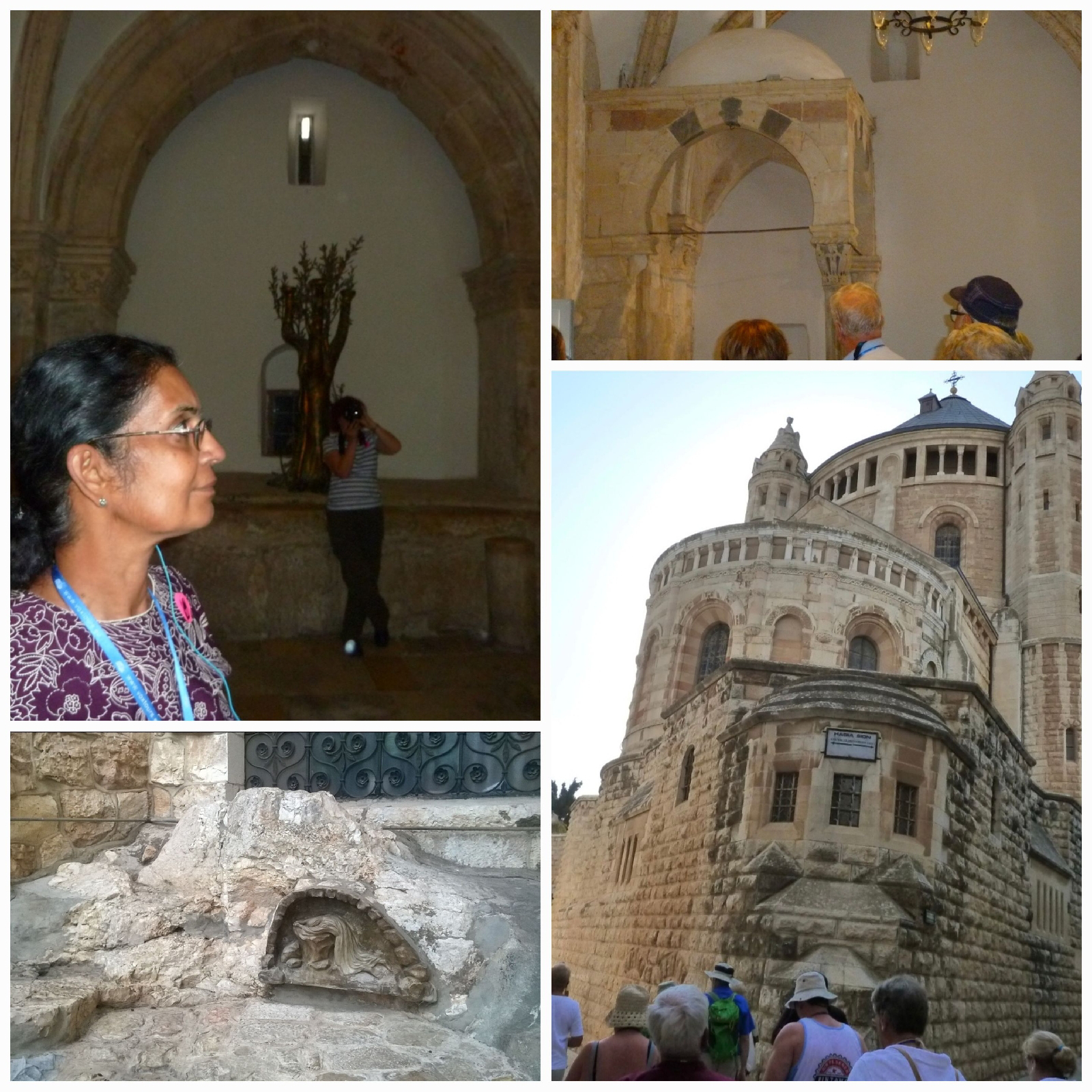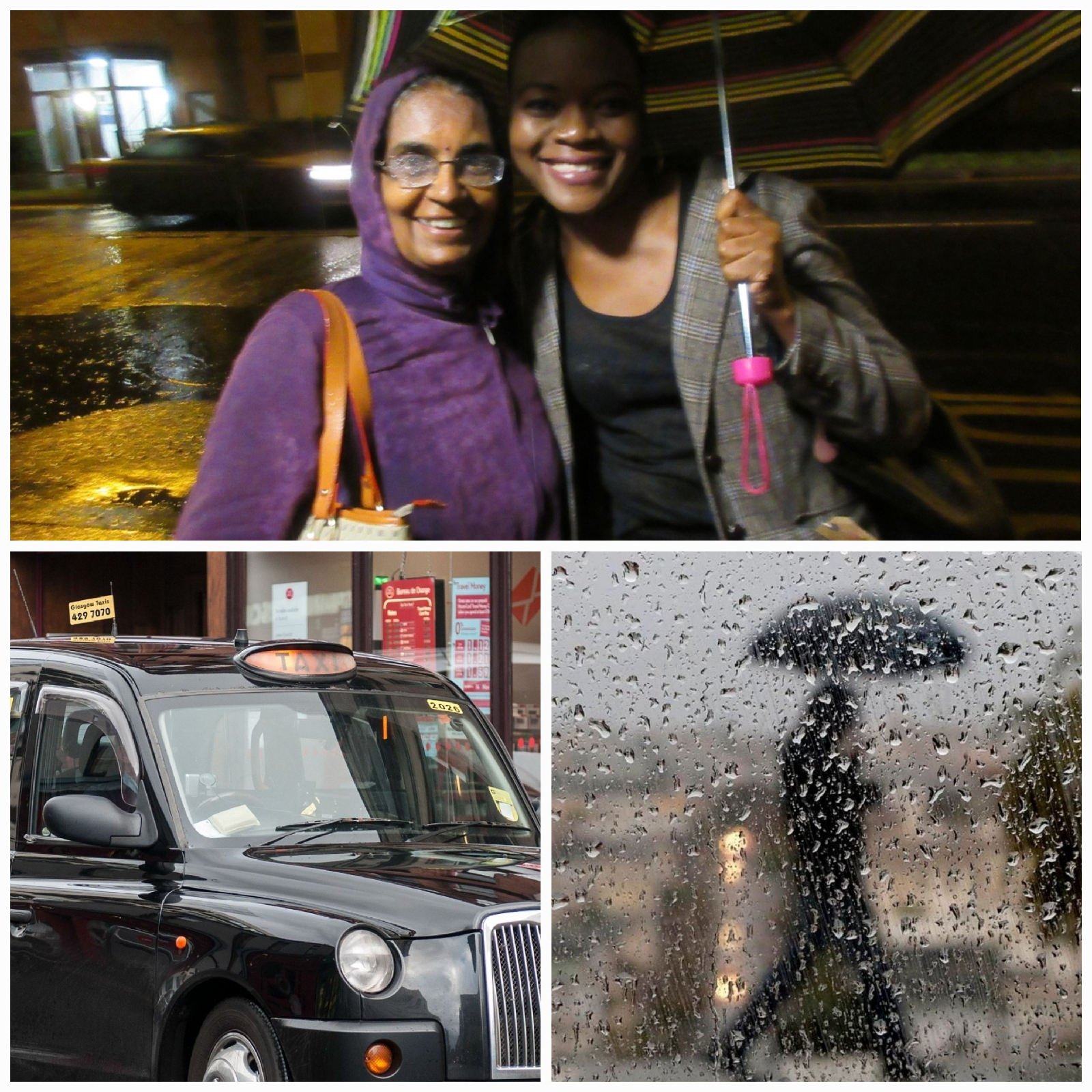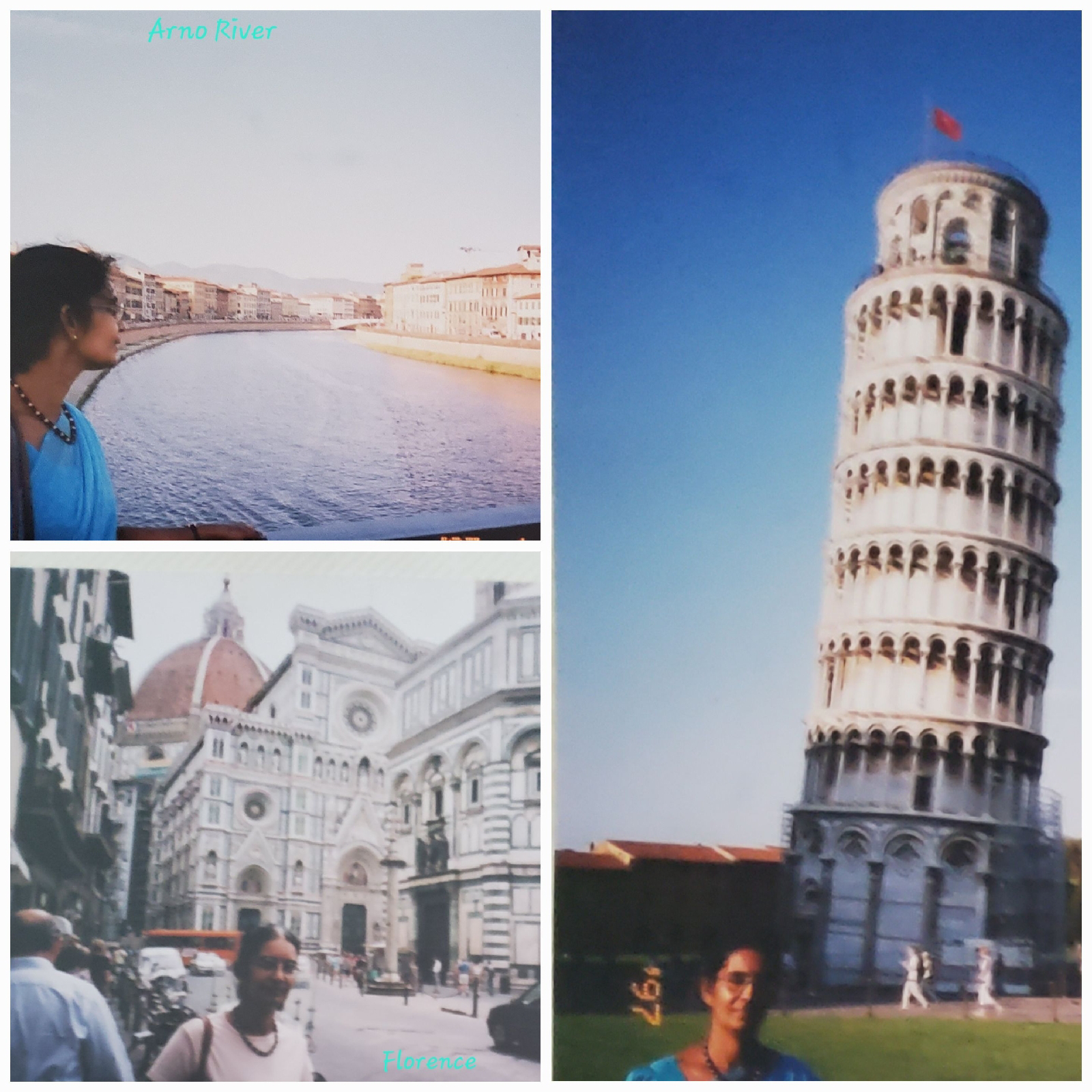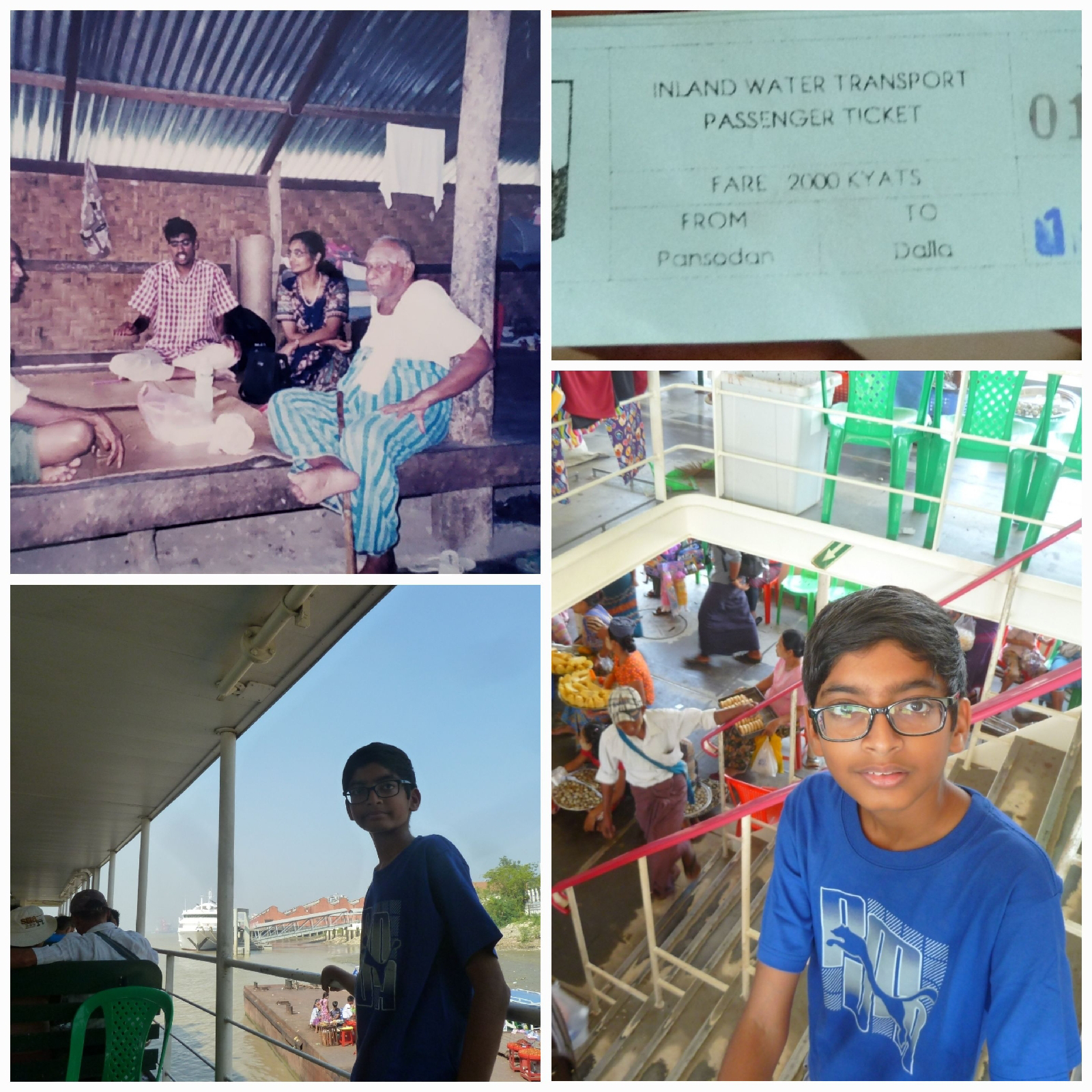Foreboding concern due to place of birth
In October 2014, our cruise ship docked in Ashdod, Israel. It was the closest port to Jerusalem. We weren't taking chances in a country frought with tension, and so we had booked with the ship's shore excursions. Clearing immigration was a cinch for most, but I was held up. The officer noticed my country of birth, Malaysia, in my passport and so he had to consult with higher ups to clarify that I was not a Malaysian Muslim (Malaysian passport holders are forbidden travel to Israel unless under special circumstances). Notably, immigration did not stamp our passports, but only inserted a slip of paper showing the date of entry. This is so that travellers are not denied entry into Muslim countries afterwards (in a previous post I detailed how my Iran visa caused a denial of entry into the USA).
Clever and sensible maneuver
We have an excellent guide. We were going into the old city first ie to the Western Wall. It was an hour's ride past forests that thrive in what was once considered arid land -- a testament to the Israeli spirit of survival eliciting research and innovative methods. Our guide is convincing when he tells us about bringing up children in a society rife with religious tensions. They wish for peace and brotherhood. He outlines some official measures to provide dissenters with the benefit of the doubt and subsidies to raise the standard of living for the not so well to do.
Our guide gets an update on his phone after which he announces a change of plan.
As we approach the city our guide tells us that there is a massive traffic at the sites we were meant to visit first and we were going to begin elsewhere on the list. The order of visits didn't matter to us. In fact, we found the new order more appropriate to experience the conundrum that is Israel.
Frame of Reference
We first go to a viewpoint across the Mount of Olives for a panoramic view of the Church of Mary Magdalene with its various golden onion domes and the contentious Temple Mount. Then as we drive towards the Jaffa Gate we get a great view of the Tower of David. The gate, which faces West, happens to be one of the main entry gates into Old Jerusalem.
Old Jerusalem, time tested tool
As we enter the old city through Zion gate and into the Armenian quarters we are reminded that we are walking the same grounds the Roman soldiers did ages ago. A saunter down the alleys leads us to the old Market with vendors selling souvenirs related to Christianity. It is strangely quiet. We are already in the Christian quarters. A man with a cart loaded with fruits sold fresh juice squeezed through a manual press. I remember my mother owning one in the 1960s. The appeal of the aroma, colour and sparkle of freshly squeezed pomegranate sure beats the boxed varieties.
Complex structures speak volumes
Synagogues vie with churches. Our walk leads us through Golgotha in the Church of the Holy Sepulchre. The reverence, the lit candles, the chandeliers, the calm expression of absolute faith of the believers, the respectful silence and the patience all lent, to say the least, an incredible atmosphere. The devout are clinging in deep devotion to some of the significant stations, the section where the anointment was said to have taken place, and, of course the very crucifixion site. But they are all mindful of others waiting their turn.
A very long queue has formed for entry tickets into the catacomb, the initial burial site. We leave the premises to the worshippers and walk towards Zion gate where the room of the Last Supper, above King David's Tomb, is. ( see my post on Milan and Da Vinci's painting)
Avoiding Herod's Gate
We do not go towards Herods gate which connects the Muslim Quarter inside the old city to the Palestinian neighbourhood just outside. We drove through that part later noticing a stark difference in the cleanliness, and the use of public space.
Beauty and history
We are back on the bus which now takes to Gethsamane at the foot of the Mount of Olives. The Virgin Mary is thought to have been buried there. Beside it is the Church of all Nations topped by a bubble dome held up by thick colums. The mosaic facade, a deep blue starry ceiling and the Byzantine mosaic flooring certainly lent to the awe factor. The Olive Gardens' 900 year old giant olive trees all gnarled and thick trunked, added authenticity to the history.
An unexpected curious feast on Sabbath Day
We get back on the bus to our last stop in Old Jerusalem: the Wailing wall. We had been frequently seeing parents with children in tow, each carrying a bunch of stalks. A few also pulled roller bags. It was fascinationg to watch a particular family of nine march in a chain starting from the tallest , and all the males sporting bushy sideburns and black fur hats.. We saw a lot more as we entered the Jewish quarter. They were all heading to temporary booths, 3 walls and a roof, made entirely of natural material, and sometimes decorated. The bunch they carried consisted of myrtle, palm, citron and willow branches.
This was Tabernacles Day, also known as Sukkot, the third most famous of the pilgrimmage days. This day commemorated the Exodus from Egypt.
The families had food in their bags for, beginning Friday at sunset, they are free of chores, including the preparation of food, till sunset on Saturday.
Finally we are led to the Wailing Wall. The several policemen there are a regular feature of the area. Bollards prevented unauthorised vehicles from entering the premises. For the visitors there were two separate entrances -- one for males and the other for females. We approach the handwashing and drinking fountain with little metal tea-pots chained by their handle to the taps. You wash you hand with water from the pots. Then you walk to a small prayer table and write you wishes or prayers on a slip of paper. Then you go to the wall and slip the folded paper into the cracks on the wall. One of our close friends wrote a note of thanks for her wonderful husband.
We notice some movement on the closed bridge that connects the Wailing wall to the JewishTemple Mount which is also where the Muslim Dome of the Rock is.
We then drive to a quieter part of the city for our late lunch. It was a surprise. I never expected to set foot in a Kibbutz, a very closed community that contributed significantly to the history of Israel. Of course, we only get to see their dining room. Its all kosher. No pork, no shellfish. A meat dish is never accompanied by a dairy product, so dessert is non-dairy. Coffee or tea after a nonveg meal is served black.
*https://www.touristisrael.com/what-is-a-kibbutz/6053/
Reason for detour divulged: religious observation and altercation
We have experienced a unique part of the world that is sacred to the three major monotheistic religions ( Judaism, Christianity and Islam) all practised with equal fervour. The place abounds in sacred shrines. For all three faiths it is a holy city and a pilgrim centre.
And this day becomes even more significant for us when the real reason for the detour was divulged. Just as we started our tour there had been an altercation involving gun shots and the deployment of soldiers. So what we we had glimpsed as we bypassed the Western Wall and the bridge was not the movement of pilgrims but that of soldiers. We had been kept from witnessing one of the frequent occurrences that arise out of religious uneasiness.
The peremptory drive in the newer parts of the city is insipid compared to the sensory overload in the old city.



